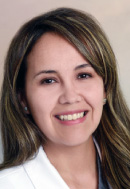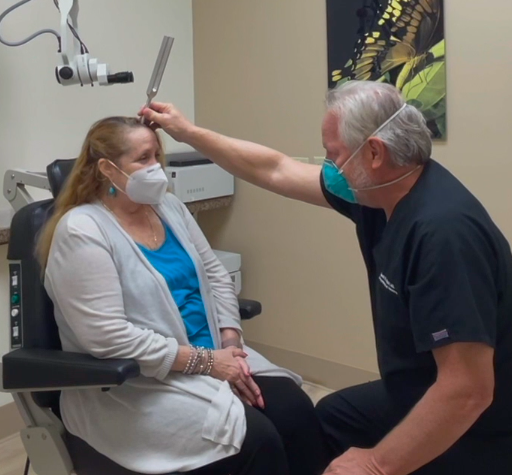Learning the Ropes: A Day in the Life of a PA
An Interview with Martha Botero-Rovira, PA-C.
When it comes time to seek medical care for any ENT related issues, there are some key factors that everyone considers: convenience, experience, skill and expertise, and bedside manner to name a few. What many are less likely to consider is whether you should see a physician or a physician assistant (PA). Many patients are pleasantly surprised to learn the full scope of practice that PAs are able to provide and the increasing number of benefits they bring to healthcare.
Physician Assistants are Medically Trained
The key difference between medical training of a physician and a physician assistant is time. Typically, doctors complete four years of medical school, followed by an internship and residency. PAs finish their training in two years. During that time, they experience many of the same scenarios as their medical doctor counterparts, including surgical procedures. In addition, many PAs choose their career path following a job or training which has already given them experience in the medical field, such as paramedic. In Martha’s case, as you’ll learn, she chose the PA path after completing medical school in Colombia.


Let’s meet Martha Botero-Rivera, PA-C. Martha is currently a fellow member of Florida Academy of Physician Assistants, the American Academy of Physician Assistants and The Society of Physician Assistants in Otorhinolaryngology / Head & Neck Surgery. She brings to the practice over a decade of experience delivering “patients-first” medical care in various clinical settings in the U.S. and Colombia.
Tell us a little about yourself, which PA program you graduated from and when you graduated.
I’m originally from Colombia, where I completed medical school and worked as a primary care physician. After I moved to the United States, I passed the U.S.medical exams, and obtained the Foreign Medical Graduate Certification in 2014. I graduated as a physician assistant from Miami Dade College, obtained the Certification from the National Commission on Certification of Physician Assistants and joined the practice of Dr. Nathan Nachlas, MD at ENT and Allergy Associates of Florida shortly after graduation.
I was one of the first graduates to complete The NFO Certification Program for PA Excellence in Otolaryngology/Head and Neck Surgery in 2019. This post graduate program was created by Dr. Nathan Nachlas, MD and Jose Mercado PA-C with the purpose to serve as the foundation for lifelong learning in the ENT diagnostic process.
What is your current specialty? Why did you choose this specialty?

My specialty is otolaryngology. I chose ENT because the field offers a unique setting. The scope of the field is incredible and encompasses principles of various specialties including primary care, infectious disease, oncology and plastic surgery to name a few.
What type of environment do you work in (hospital, clinic, administration, or a mix)?
My employment is in an office setting exclusively; however I do support the post-anesthesia care unit (PACU).
What is your schedule like? Do you work Monday through Friday, weekends, holidays, night shifts?
I work Monday to Friday from 8 to 4:40, but there is always extra work to do after hours, so I typically stay in the office till 6pm. Thankfully I do not work weekends or holidays.
Do you take call?
I don’t have to be on a call round with the hospital, which is nice. We do take patient phone calls during the weekend for urgent matters. Most of the time the call is triaged by a medical assistant. If there is something that they cannot handle, then we take care of the patient call.
Describe what a typical day like for you?
I usually start my day at 8 am, unless it is a surgical day were I am assigned to help in PCAU, then my day starts at 6 am. On an office day, I see an average of 10-15 patients. They come with a variety of ENT complaints and we also see post-operative patients.
How autonomous are you, what types of things do you involve your supervising physician for and what do you do on your own? Is this typical for your specialty or more specific to your situation?
I’m 90% autonomous. I usually involve my supervising physicians if there is a case that surpass my knowledge or requires surgical management. I believe this is typical for my specialty.
Do you currently participate in any administrative tasks or have a leadership position, formal or informal? Do you think these augments or hinder your other responsibilities?
I do not participate in any administrative tasks.
What advice would you give to a PA who is considering working in your specialty?
Learning about ENT on my own was and continues to be challenging. Therefore, I strongly suggest doing a postgraduate program in ENT or enroll in a fellowship for PA’s in ENT.
What is the one thing you wish PAs in other specialties knew before calling or referring to your practice?
I wish they had a better understanding of how to properly examine the ears.
Is there anything else you’d like to add?
I will say to the PAs that want to work as ENT PAs, they should look for any opportunities to learn. For example, continuing education is a great tool during the learning process. It is an investment of time and sometimes money into improving yourself. It will make them more qualified for advanced work and increase confidence in the evaluation of patients.








